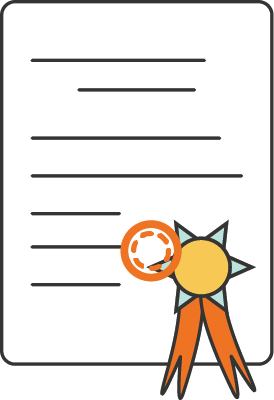Thinking about working in China? You’ll most likely need to provide your resume in Chinese — 中文简历 (Zhōngwén jiǎnlì). In this article, we’ll guide you through the essential Chinese vocabulary to craft an impressive CV.
Vocabulary for Chinese Resume
01. Personal Information
The first section of resume is usually personal information — 个人信息 (gèrén xìnxī). It will include fields such as:

姓名
xìngmíng
full name
性别
xìngbié
gender
出生日期
chūshēng rìqī
date of birth
联系方式
liánxì fāngshì
contact Information
NOTE
Contact information usually includes basic information such as phone number, or 电话 (diànhuà), and e-mail address, or 邮箱 (yóuxiāng).

求职意向
qiúzhí yìxiàng
desired position
GOOD TO KNOW
It may be rare for resumes in English, but it’s pretty common in China to provide personal information like health condition, or 健康状况 (jiànkāng zhuàngkuàng); marital status, or 婚姻状况 (hūnyīn zhuàngkuàng); and even height, or 身高 (shēngāo).
02. Educational background
Next section that is important to add to your CV is educational background, or 教育背景 (jiàoyù bèijǐng). You can list your academic experiences from newest to oldest.

学校
xuéxiào
school/university
专业
zhuānyè
major
学位
xuéwèi
highest degree obtained
学毕业日期
bìyè rìqī
graduation date
主修课程
zhǔxiū kèchéng
major courses
🤓 If you have any extra achievements — scholarships, completed training programs, or experience studying abroad — definitely include them in your CV.
留学经历 (liúxué jīnglì) ∙ experience studying abroad
奖学金 (jiǎngxuéjīn) ∙ scholarship(s)
项目经验 (xiàngmù jīngyàn) ∙ special program(s)
03. Work Experience
Right after your educational background, you can list your 工作经历 (gōngzuò jīnglì), or work experience.
🤓 Make sure to choose the work experience that corresponds with the position you’re applying for. It’s important to tailor this section to the specific job or industry.

公司
gōngsī
company
职位
zhíwèi
position
就职时间
jiù zhí shíjiān
duration of employment
职责
zhízé
job responsibilities
NOTE
You can also use these keywords to highlight your work experience:
业绩 (yèjì) ∙ noteworthy accomplishments
重要成就 (zhòngyào chéngjiù) ∙ key achievements
04. Skills and Certifications
技能并认证 (jìnéng bìng rènzhèng), is a section where you can incorporate your skills and expertise, showcase your language proficiency, add relevant certificates, etc. Again, make sure to tailor this section to the position you’re applying for.

语言能力
yǔyán nénglì
language proficiency
熟练使用……
shúliàn shǐyòng …
to be proficient in using (+ tool)
05. Self Evaluation
The last section of a Chinese CV includes self-evaluation part, or 自我评价 (zìwǒ píngjià). Feel free to include more personal information there — your hobbies, interests, etc.

爱好
àihào
hobby
兴趣
xìngqù
interest; taste
个人经验
gèrén jīngyàn
personal experience
Write Your Own 个人简历
Time to write your CV! Here is a typical format for a resume in Chinese — you can use it as an example when creating your own.

加油💼
Good luck on your journey!
If you would like to work in China, you will be dealing with people from a completely different cultural background. It would be a good idea to know a bit more about what you need to take into account when working in China. The following tips may come in handy in the future.









0 Comments